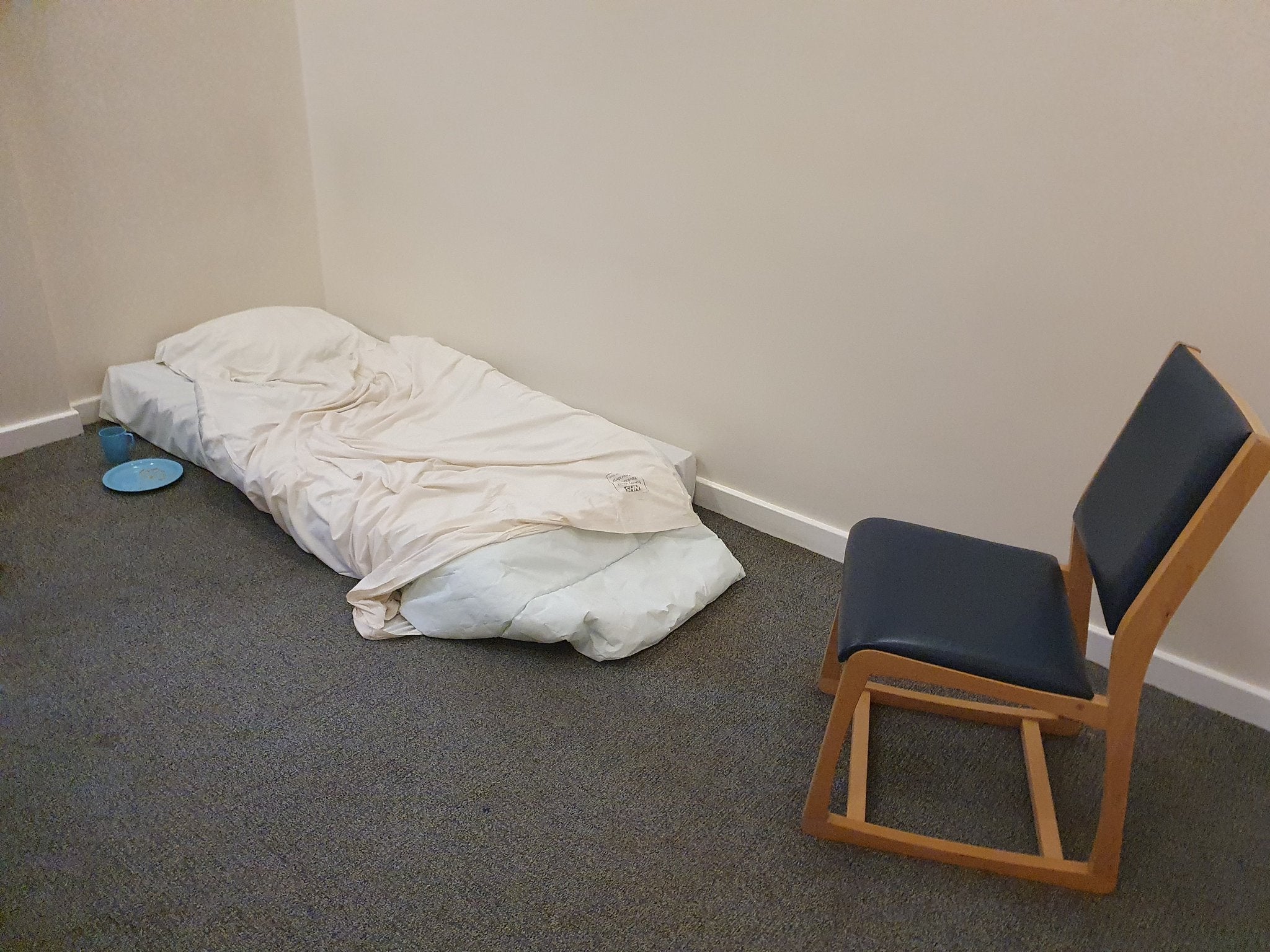Mental health patient made to sleep overnight on hospital floor: ‘Animals are treated better’
Exclusive: ‘I’m poorly and you think this acceptable to put me in room like this,’ patient says while spending night on floor

A patient suffering a mental health crisis was made to sleep overnight on the floor of an NHS hospital because it had no spare beds, The Independent has learned.
On Sunday, Mr Ben Ashcroft was given a mattress on the floor at Barnsley Hospital where he had been admitted after waiting for 36 hours at a different mental health hospital.
He described the situation as being “treated like a prisoner”, adding: “An animal is treated better than this. I’m poorly and you think this acceptable to put me in room like this. This all I have in room. Rather be in prison.”
Mr Ashcroft was detained, earlier in the week, under the Mental Health Act at Calderdale Royal Hospital, in West Yorkshire.
But this hospital had no beds available and transferred him to another site in Barnsley where he was taken to a room with just a mattress.
Mr Ashcroft was too unwell to comment further, but gave The Independent permission to use his statements and the photographs he shared on Twitter. He has since been admitted to a normal bed in Calderdale.
His experience underlines wider problems across the NHS, from record waiting times for ambulances and appointments, and a shortage of beds.
In a statement to The Independent, the trust said demand for beds over the weekend was “exceptionally high” adding “with this level of demand we took short-term measures to ensure all our service users were kept safe”.
It said the pressures resulted in a patient being put “temporarily” in a lounge while a room was being found by staff.
Medical director for the trust Dr Subha Thiyagesh, added: “The safety of our service users is the top priority for us, as is providing care as close to home as possible.”
The Care Quality Commission watchdog recently warned that patients across the country have been unable to get referred for specialist mental healthcare in the community due to a lack of capacity.
The Independent revealed last month that one child who had serious mental health problems was left waiting in an A&E department for 48 hours for a specialist mental health bed.
NHS Providers, which represents all NHS trusts in England, has also revealed mental health services are facing a backlog of 1.6 million patients who’ve been left waiting for care.
After raising an alert about his situation on social media, Mr Ashcroft was sent back to Calderdale Hospital where he was given a room with a bed.
He said: “I’d like to thank everyone for their concern and support at this horrendous time I’m having. It has magically found me a bed... Back where I was sent from. I am being moved back to Calderdale this afternoon.”
In March this year the NHS failed to meet promises it would end the practice of sending mental health patients far from home, often hundreds of miles away.
The latest national data, published last week, showed these “out of area placements” have remained stubbornly high throughout the pandemic, with hundreds sent away from their home area each month.
Responding to Mr Ashcroft’s case, the president of the Royal College of Psychiatrists, Dr Adrian James, said: "Being treated far from home, sometimes hundreds of miles away, because the right bed isn’t available locally is disastrous for patients and their loved ones.
"The pandemic has led to more people in crisis and reduced capacity on many wards. The government must urgently invest in additional beds in the areas that need them most and maintain funding for post-discharge support.”
Join our commenting forum
Join thought-provoking conversations, follow other Independent readers and see their replies
Comments
Bookmark popover
Removed from bookmarks